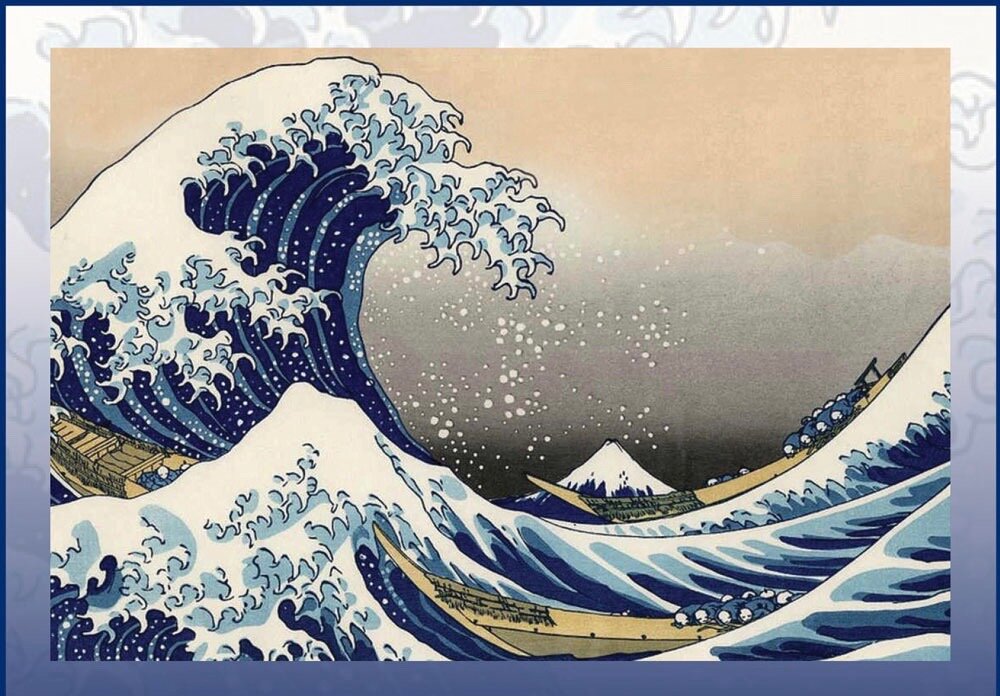This week has been a sobering transition of sorts. Due to an unusual weather pattern, smoke from wildfires plagued us last week from Nova Scotia, a part of Canada we never imagined on fire. Homes were lost and people displaced. Resources were expended immediately to combat those fires.
Then Monday night, the weather pattern changed again and smoke from even more horrendous wildfires in Quebec descended toward the east coast in billows and plumes, white skies obscuring blue in the mornings, thin sunshine with pallid shadows emerging and disappearing during the day, a red ball seen through grey smoke in the afternoon one could directly behold. We exchanged numbers on the air quality index with friends and family around the east coast as we watched the index soar into the unhealthy to very unhealthy ranges. Pictures in the news showed New York City disappearing from New Jersey in a dense orange haze, the AQI topping out at 414 - hazardous, the lurid purple of the end ranges of the index adding to the sense of the disaster.
And we learned that the worst of the fires were uncontrolled, occurring in uninhabited forest land - places that were difficult to get to.
So we all woke up to a new reality - one that we thought was confined to the west and midwest with only mild inconvenience to our way of life here. We learned once again that we are not separate, that what happens in one part of the country, one part of the world, makes its effects apparent elsewhere, even here, where we live. And we grapple with the knowledge that the fires continue, only the shifting weather patterns have spared us their fierce and deadly reminder. For now.
How do we as meditators relate to, respond, live with these events, this stark evidence of our changing world?
On one level, just like everybody else - with growing fear, horror, anxiety. Or the false comfort of denial. We can perhaps relate to climate deniers a bit here. Or passive resignation and hopelessness. These are very human responses to this increasingly terrifying world. As Wendell Berry wrote (quoted in Elizabeth Drake’s excellent book Rising: Dispatches from the New American Shore), “It is the destruction of the world in our own lives that drives us half insane, and more than half.”
I met with a group of dharma friends this week - windows and doors closed, dehumidifier and air purifier running full on. One of our members was not present, having at long last entered Hospice for her final transition. Our sadness, hidden behind everydayness, emerged over the hour as we talked about our friend, how her illness had progressed and how her practice progressed with it, how one of us assisted her on a retreat as she adjusted to her confinement to a wheelchair, how she waited patiently in this wheelchair at the bottom of the endless ramp to the meditation hall on a different retreat for someone to push her when she tired, what a gift it was to arrive and give her that assist, how her courage and good will and loving kindness were grounded in her fierce independence, and how in recent days as she began to accept more and more help, she came to understand on a deeper level, at her core, just how loved she truly was.
Stephen Levine’s Healing into Death and Life chronicles just such a journey into grace. And we as her dharma friends came to glimpse what a gift accepting help can be to those offering, what a privilege and an acceptance into intimacy being allowed to help can be.
One of our group joined us from her shift as a volunteer at a Hospice facility many states distant from our friend, the atmosphere of the Hospice - murmured conversations of love and condolence - permeating our zoom room with a kind of whispered sanctity. And over the course of our time together, our grief merged with our love and a rich joy suffused with sadness grew in each of us. We felt blest by our coming together, by having one window open to the caring and transitioning of the Hospice, by having the darkness surrounding each of our separate windows filled with the presence of our transitioning friend, our gathering giving each of us the courage to come into direct experience of all that we were feeling, all that was unfolding.
In Rising, a student of the author sends her a poem in the voice of God. It goes like this:
What do you expect me to do
I am not human
I gave you each other
so save each other.

